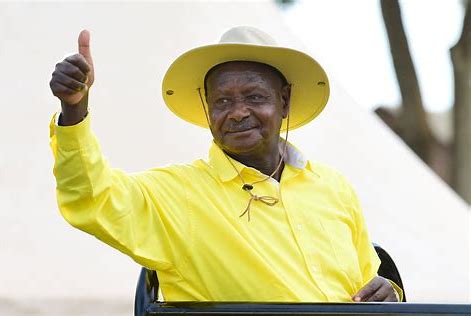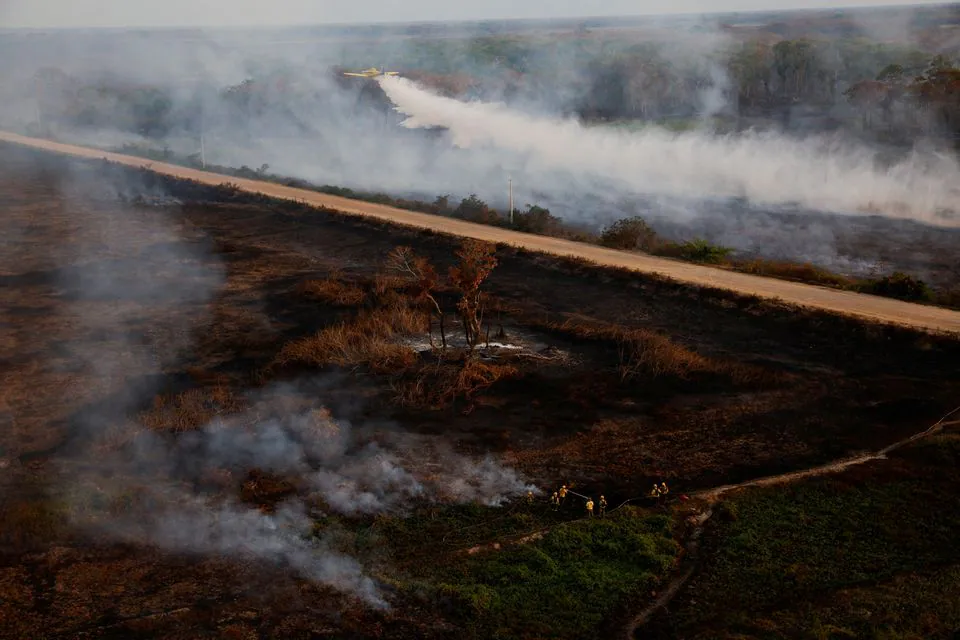
Governing as governance is often ignored by governors, especially the political ones. The same political governors ignore environmental governing as environmental governance.
It is not easy to separate political governing from environmental governing. It is also difficult to separate political governance from environmental governance. This is because political decision-making is central to environmental governance at all levels of decision-making.
Effective environmental governance is seen in its capacity to maintain diverse ecologies simultaneously with diverse economies and ecology supporting a particular combination of economy. Because Uganda has a diversity of ecologies, including agroecological farming systems, environmental governance should encourage the perpetuation of ecologies that support the various agroecological farming systems on which we depend for food and socioeconomic security.
But what is ecology? Ecology can be defined as the study of the relationships of organisms with their living and non-living environment. Most ecologists are interested in questions involving the natural environment. Increasingly, however, ecologists are concerned about degradation associated with the ecological effects of humans and their activities.
Ultimately, ecological knowledge will prove to be fundamental to the design of systems of resource use and management that will be capable of sustaining humans over the longer term, while also sustaining other species and natural ecosystems. Different ecologies require different management regimes rather than a universal management regime. A universal management regime will encourage ecological degradations. There should be many ecologies in a sustainable and productive environment.
In this article I want to relate effective environmental governance to diverse ecologies, and by extension, the diverse agroecological systems they support in Uganda. Whatever the political governors say, Uganda’s future will be best stabilised not by industry but to what extent we succeed in sustaining our diverse ecologies. It is, therefore, absolutely important that if we are to sustain economies we must judiciously and financially invest in the environment and its diverse ecologies.
Unfortunately, in Uganda we are investing far more in politics and human resources principally for power retention at the expense of environment and diversity of ecologies. This is exacting negative impacts on the productivity of the country, especially in terms of food.
We know that it is the craze for industrialisation, simultaneously with the resurgence and proliferation of the nomadic-pastoral human energy system, that jointly pose the greatest danger to our diverse ecologies and agroecological systems of Uganda. In effect diverse ecologies and agroecological systems of Uganda constitute its environmental governance. If we enhance environmental governance, we automatically enhance the staying power of the diverse ecologies and agroecological systems of Uganda.
Unfortunately, through environmentally ineffective policies and practices, Uganda since 1986 has been destroying its environment. Without providing empirical data, I do not hesitate to state Uganda has lost more in conservation than since the white man handed political power to a black man.
In his article “Diverse Ecologies: Mapping Complexity in Environmental Governance”, Robert Fletcher does not only focus on influential “diverse economies” perspective but seeks to integrate this with research in political ecology that devotes greater attention to issues of structural power. In particular, the article draws on the growing analysis of environmental governance as a form of “environmentality” building on Foucault’s influential governmentality analytic. He notes that, while early literature in this area overlooked the multiple forms of environmentality that may intersect within a given context, more recent research emphasises this diversity. Integrating multiple environmentalities and diverse economies perspectives thus provides the grounding for the “diverse ecologies” framework outlined by Robert Fletcher.
As Robert Fletcher observes, debate persists concerning how to analyse and interpret the diverse forms of environmental governance in operation throughout the world. Much of this contention concerns the widely documented discrepancy between what Carrier and West (2009) term “vision” and “execution” in such governance.
One of the main aims of research concerning environmental governance, after all, is to ascertain which strategies are most effective, under what conditions, in which contexts, and why, in pursuit of the elusive goal of greater sustainability. Without a common set of conceptual categories as the basis for discussion of these urgent issues, researchers will be condemned to forever talk past one another. It is for this reason that Robert Fletcher has proposed a novel conceptual framework offering a set of categories intended to parse complex forms of environmental governance in both policy and practice. He has called it “the study of “diverse ecologies,” building on the influential “diverse economies” perspective pioneered by J.K. Gibson-Graham (esp. 1996, 2006).
Fletcher goes on to give a synthetic theory of environmental governance. To take issues of structural power seriously, he complements Gibson-Graham by drawing on political ecology, an approach that investigates the complex and multi-dimensional relationship among environmental, political-economic, and cultural forces (Bryant, 2015; Perreault et al., 2015). Importantly, political ecology emphasises the interconnection among the various stakeholders involved in environmental governance at different scales – from global to regional, national, subnational, and local – that may influence seemingly spatially bounded situations, as well as negotiation and contestation among actors at each of these.
In terms of specific policies, Castree (2010) distinguishes a wide variety of modalities advanced within particular neoliberal programmes. These include: Macro-economic Policies, Industrial and Business Policies, Labour Market Policies, Education and Training Policies, Social Policies, Civil Rights Policies and Governance Policies. With specific reference to Uganda, to these we can include Forestry Policies, Land Policies, Agricultural Policies, Fisheries Policies, Mining Policies, Refugee Policies, Settlement Policies, Housing Policies, Industrial Policies, Environmental Management Policies, Security Policies, Administration Policies, Economic Policies, Rural Development Policies, Energy Policies, Wildlife Policies, et cetera.
Robert Fletcher submits that ultimately, for effective environmental governance, there should be an emancipating politics, and that “the goal of an emancipatory politics, like Gibson-Graham’s community economies project, must be to support initiatives that challenge the dominant neoliberal capitalist order, helping to develop an open space for imagination and enactment of viable “alternatives,” both those already existing in the institutional interstices and those that have yet to be manifested.
In this sense, the overarching aim must be to champion direct democratic decision-making and egalitarian distribution of resources. Identifying and nurturing elements of such a “communal” or “liberatory” governmentality (and associated policies, practices, and forms of subjectivities) is thus the grandest ambition of the multi-dimensional framework proposed in this paper. How to achieve this remains a vital question for future research and practice that I hope will be further pursued as well”.
I now want to address myself to environmental governance for diverse ecologies in Uganda. In doing this I will manifest as a political ecologist. The question in the title of this article is: Is it Possible?
Of course, it is possible if we take policy making seriously to highlight the truism that environment is the foundation of meaningful and effective development, transformation and progress in and of Uganda in the 21st century and beyond. Our policies, in almost every sphere, are more tuned to sustain and extend the powers that be rather than environmental governance for diverse ecologies. Let me say something about a few of the policies and how they relate to environmental governance for diverse ecologies: Lack of space dictates that I do not comment on the majority of the policies.
Macro-economic Policies
Uganda’s Macro-economic policies are economistic, completely unrelated to meaningful and effective environmental government. Emphasis is sowing the seeds of money economy and on the flow of goods and services and exploitation of natural resources, including water for hydropower energy.
Industrial and Business Policies
Uganda’s industrial and business policies favour foreigners at the expense of local investors. Industrial and business activities are mainly by Indians and Chinese. Most of these activities are at the expense of the environment. Environmental governance is not their concern but reaping profits and sending back to their countries most of what they make. The industrial and business activities are greatly dependent on slave labour, in the absence of a minimum wage. On November 23, 2023, President Yoweri Museveni held a huge President’s Investors Conference. It was all about production. There was no mention of the environment. None of the enterprises that voiced their concerns related his or her business to environmental degradation. Clearly, there is no attempt to cause industry and business to get involved in environmental renewal and sustainability. The president wants a similar conference to be held in January 2024. Hopefully environment will be taken seriously then.
Labour Market Policies
It is not clear whether Uganda has labour policies. If she has, they are dysfunctional. In particular, there is no minimum wage to cater for Ugandan workers’ interests. One consequence is that many workers fall back to the physical environment to eke out a living. Or else may young people who would be productive in the economy are offering themselves for slavery in the Arab countries. Others have chosen or been compelled to become external slaves in the Middle East. I have written about this menace in another article specifically on human trafficking.
Education and Training Policies
Education and training in Uganda is still rooted in the past, driven as it its by disintegration of knowledge. Therefore, the products of the education system are still disciplinary and who, therefore, see, pursue and produce knowledge disjointly. They are completely unaware of the existence of new knowledge cultures and/or systems, namely: interdisciplinarity, crossdisciplinarity, transdisciplinarity and extradisciplinarity, which are more sensitive to meaningful and effective environmental governance. Effective environmental governance requires interculturality, crossculturality, transculturality and extraculturality. Since we need critical thinkers, sustainability science, effective teamwork and future-ready professionals, we must rethink education and training policies to begin to produce people we need to govern the environment for diverse ecologies.
Social policies
Our social policies need serious rethinking. They are still exclusionary and disintegrative. With the rise and rise of external refugees and their gain from our sovereignty, nationality, citizenship and dual citizenship, the social policies are benefitting them, and especially the nomadic pastoralists, who are grabbing land in every part of Uganda. They are undermining environmental governance for diverse ecologies.
Land policies
The current land policies are encouraging foreigners to dispossess and displace indigenous peoples/ communities of their land. Land is grabbed by foreigners or by government on behalf of the foreigners. Consequently, we are not only losing the cultural perspectives of environmental governance, but many indigenous people who are being disconnected from the land, have become a floating population as internal refugees. They cannot be meaningfully involved in environmental governance.
Civil rights policies
Uganda’s civil rights record has meteorically deteriorated. Many non-governmental organisations (NGOs) have been restricted, sometimes by fear or being banned, from being effectively involved in improving environmental governance in Uganda
Governance policies
Governance policies in Uganda are guided by President Tibuhaburwa Museveni’s philosophy of development that development comes first, environment and nature next and people last. This policy has encouraged environmental and ecological destruction, thereby eroding the diversity of our ecologies. In other words, current governance policies are anti-environmental governance for diverse ecologies.
Mining policies
Mining in Uganda is guided by the country’s open market economy under its privatisation policy. However, it has encouraged land grabbing where minerals have been established to be present. A good example is Gold in Karamoja and Bugweri in Busoga, which is reputed to have far more gold than the Democratic Republic of Congo. Unfortunately, it is people of ethnic identity similar to that of the people who dominate power in Kampala.
Refugee policies
Uganda’s refugee policies favour cross-border refugees and disfavour internal refugees. Refugees, whether cross-border or internal refugees, exact negative impacts on the environment, thereby constraining effective environmental governance. We now know that the NRM government is borrowing heavily to make life liveable for the cross-border refugees. Uganda has become one of the top three countries in the world with the highest numbers of refugees and the topmost in Africa, thanks to the NRM government, which has a soft spot for external refugees.
Rural development policies
Rural Development policies of Uganda are not clear. The ones we have encouraged use of money bonanzas to a few individuals at the expense of whole communities. We have had money bonanzas in form Bonna Bagaggawale, Myooga, Parish Development Model, Operation Wealth Creation, et cetera.
While these have been committed to sowing the seeds of money economy, they have not contributed much to rural development. If anything, they have sunk the rural areas deeper into the abyss of poverty and debt. Most of the money invested in the schemes has ended up being misappropriated. There have been no proper environmental guidance to the individuals that get the money. They have continued as before: eroding the environment. Environmental governance is not inbuilt into the schemes.
I cannot say enough on each of the policies I have chosen to write about. Neither can I attempt to write on all the policies identified in this article. I hope that what I have done will evoke other researcher to undertake necessary research to improve policies and environmental governance for diverse ecologies. We need to know how we can liberate environmental governance from orthodox politics – the politics of acquisitiveness, exploitation, consumption and conquest of nature – to ensure diversity of ecologies in the 21st century and beyond.
For God and My Country
- A Tell report / By Prof Oweyegha-Afunaduula, a former professor in the Department of Environmental Sciences of the Makerere University, Uganda











